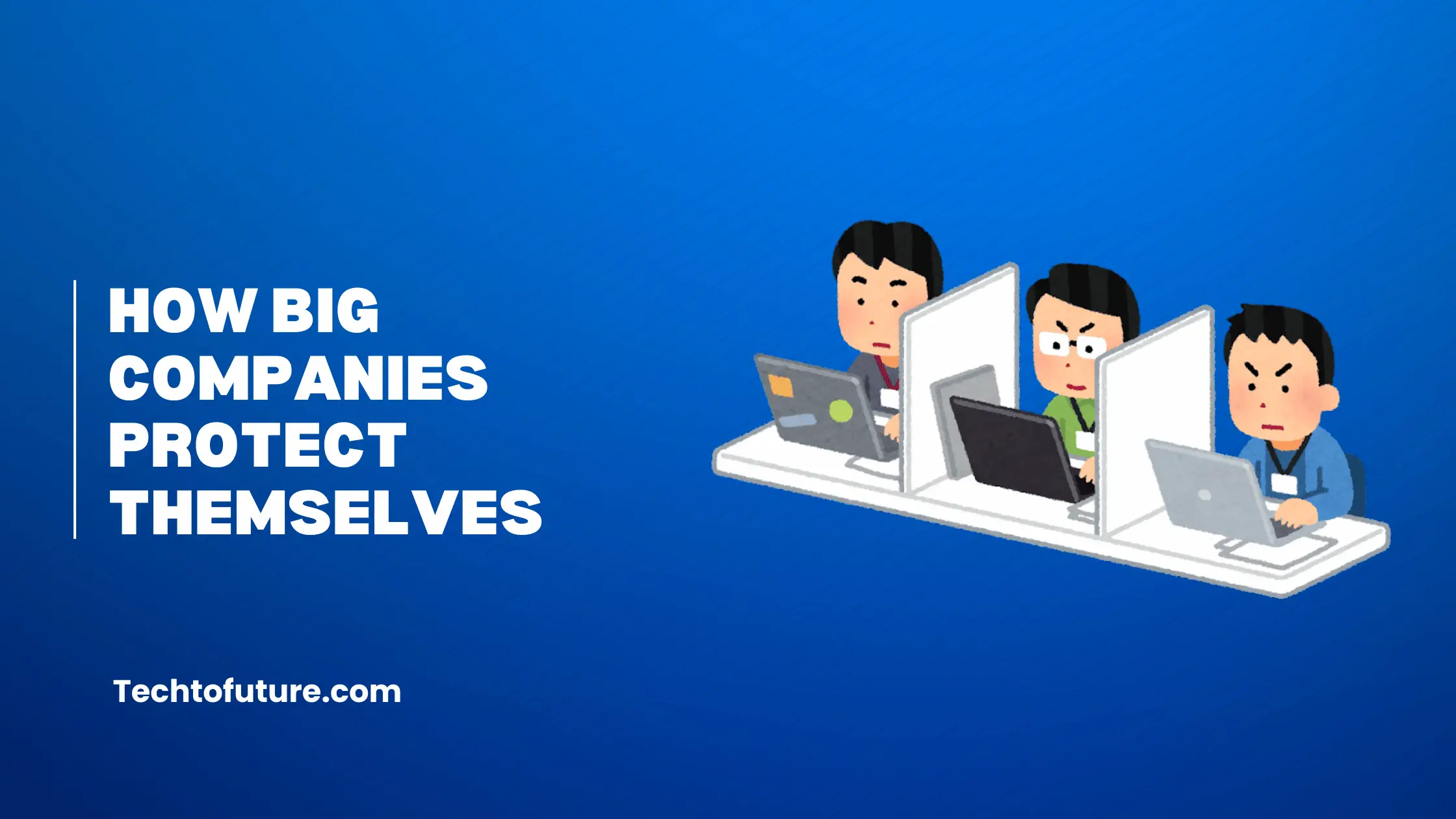How Does Cybersecurity Work? A Friendly and Easy Guide
Published: 8 Nov 2025
We live in a digital world where almost everything is connected to the internet. We chat, shop, study, and work online every day. These activities make life simple, but they also bring risks. Hackers and cybercriminals are always looking for ways to break into our systems and steal information.
Cybersecurity protects computers, phones, and data from these attacks. It uses tools like firewalls, encryption, and security software to stop hackers before they can cause harm. Skilled people and smart technology work together to keep your information safe.
Knowing how cybersecurity works helps you understand what keeps your digital life secure. In this guide, you will learn what cybersecurity is, why it matters, and how it defends your data through detection, prevention, response, and recovery. You will also find simple steps to stay safe online every day.
Table of Contents
What is Cybersecurity?
Cybersecurity is the skill of keeping hackers out of our computers, phones, apps, and online networks. These hackers frequently attempt to steal our passwords, private photos, bank information, or even our schoolwork. If you don’t have cybersecurity, hackers can easily access your devices and steal your personal information.
Think of cybersecurity as a team of strong locks, guards, and cameras working together to protect your online world and your devices from harm. It prevents people who want to access your online world illegally from doing so and those who interfere with things. This is also known as information security, which keeps your digital world safe and secure.
Why Do We Need Cybersecurity?
These days, almost everything happens online, from studying to chatting and even from shopping to banking. This means that our private data, such as passwords, credit card numbers, and personal messages, are always accessible on the internet.
Sadly, hackers, scammers, and cybercriminals are continuously seeking ways to get into our systems to steal our information to harm us. Cybersecurity is what keeps these criminals from hurting us or stealing our personal information. It works like a shield, keeping our networks, apps, and computer systems safe and running well without any significant problems.
To keep people, as well as schools, clinics, companies, and entire communities safe, we need strong and reliable ways to protect our computers and information from hackers. Without it, our online lives would be much easier to attack.
How Does Cybersecurity Work?
Cybersecurity isn’t magic; it is a carefully planned group of people, tools, and technologies that work together to keep our devices and data safe. These tools constantly monitor our computers and networks for any unusual or malicious activity. Cybersecurity responds immediately to stop and resolve the issue if it detects something unusual.
Here is how cybersecurity works in four simple steps:
1. Detect
Cybersecurity tools are always watching our devices and networks. They look for all unusual behaviors against our systems or within our systems, such as suspicious file uploads, downloads, or login attempts that are not expected. So, the primary goal is to identify potential issues early before they escalate into more significant problems.
2. Prevent
Security tools, such as firewalls and antivirus programs, serve as strong protectors against dangers. They prevent hackers, viruses, and malicious software from accessing your devices. This helps keep your computer, applications, and information secure and safe from damage.
3. Respond
If an attack occurs, acting quickly against it is crucial. Cybersecurity professionals or special software quickly step in to stop the threat. They remove the danger and they also make sure that the essential information stays safe and protected or not.
4. Recover
If something goes wrong with your computer or data, there are steps you can take to resolve the issue. Backups, which are copies of your essential files, can help bring back anything that was lost. There are also plans in place to guide the repair process, ensuring everything works well again quickly.
Types of Cybersecurity Protection
1. Data Security
This ensures your files, photos, and documents remain secure from hackers and malicious software.
2. Application Security
This protects apps, such as games or banking apps, from vulnerabilities that hackers could exploit to gain unauthorized access.
3. Cloud Security
Cloud computing involves storing your data on the internet, similar to how you might use platforms like Google Drive. Cloud security ensures that your online storage stays safe and well-protected.
4. Network Security
This protects the internet connections between devices, preventing cyber threats from accessing your systems.
5. Information Security
In this type of protection, all types of information, whether written on paper or stored electronically, are kept secure and protected from unauthorized access.
Common Cyber Threats
1. Malicious Software (Malware)
Malware is a term used to describe harmful software created to damage your computer or steal your personal data. This category includes various types of malicious programs, such as viruses, spyware, and worms, all of which pose risks to your digital security.
2. Ransomware Attacks
Ransomware is a specific type of malware that encrypts your files, rendering them inaccessible, and then demands a payment often in cryptocurrency in exchange for the decryption key to unlock them. It’s like someone taking your house keys, locking you out, and then asking for money to give them back.
3. DDoS Attacks (Distributed Denial of Service)
Hackers send excessive traffic to a website, causing it to stop functioning. It’s like having too many people try to go into a small store at the same time so no one can get in.
4. Social Engineering
Hackers trick people to share their private information, such as passwords. They often act like someone you know and trust, which makes it easier to trick you.
5. Data Breaches
It is a type of hacking in which hackers break into systems and take personal information, such as names, addresses, and credit card numbers.
How to Stay Safe Online
To stay safe online follow the given steps:
- Always choose a strong password and make it hard to guess, and never share it with anyone. A good password combination is built combining letters, numbers, and symbols.
- Activate Two-factor authentication (2FA) in your account, it makes your accounts even safer. They will still need to access your phone or another device to gain entry, even if they guess your password.
- Get a solid antivirus program and stay updated. It will help you find new threats before they can do any damage.
- Don’t open emails from people you don’t know or click on links that look strange.
- Back up your important files to an external drive or the cloud regularly. If something goes wrong that way, you won’t lose everything.
- Always keep your devices and apps updated. This helps ensure you stay safe and protected. Updates often fix problems with security.
By following these steps, you’ll feel more confident and secure while browsing the web.
What is a Cyber War?

When countries fight each other with computers instead of guns or bombs, this type of war is called Cyberwar. In this war, they will attempt to steal each other’s secret military information, spread lies about one another, or sabotage critical systems, such as hospitals and power grids.
Cyber warfare is a term for this kind of conflict, and it all happens just in front of the screens. These digital conflicts can significantly harm all countries, even though they are not as visible as regular wars.
Every country needs cyber security experts because they all have their most important data collection. That’s why governments need a strong cybersecurity system and experts who are knowledgeable about it to keep themselves safe.
Cybersecurity at Home, School, and Work
Everyone needs to be safe online, not just big companies so everything needs security for this purpose.
- It keeps hackers away from accessing your family’s private photos, money, and messages.
- It protects students’ homework, records, and online learning platforms while they are at school.
- At work, it prevents hackers from accessing company files, customer data, and trade secrets.
- It is essential to have robust cybersecurity measures in place to protect your email, online gaming accounts, and YouTube accounts.
Simple Cybersecurity Tips for Everyone
Here are easy cybersecurity essentials everyone can follow daily:
- Think twice before clicking on any link online.
- Don’t share private details, such as your address or bank information, with strangers.
- Learn how hackers use cyberattacks and malicious software to trick people.
- Update your apps and software regularly to stay protected.
- Only visit trusted, safe websites.
Why Cybersecurity Is Important Now
The Internet of Things (IoT) connects everyday items like devices, cars, and appliances. These things have sensors, software, and internet access, letting them link up and share data online. These days, many things are connected to the Internet, including our phones, TVs, watches, and even refrigerators.
All these add new risks. Now, hackers attempt to find ways to gain access to these devices and steal sensitive information from them. That’s why it’s more important than ever to keep your apps and data safe easily. To protect themselves from cyber threats, big companies invest in robust security solutions.
How Big Companies Protect Themselves

Large companies require additional protection because they handle a significant amount of sensitive information. To stay safe, they do these things:
- Firewalls prevent hackers from accessing their networks.
- Antivirus software prevents viruses and other threats from causing harm.
- Encryption keeps private information safe by making it impossible for anyone unauthorized to read it.
- Teams of experts monitor systems continuously to identify and resolve issues as soon as they arise.
- They can quickly recover from an attack because they regularly back up their data.
FAQs
How does cybersecurity protect my data?
Cybersecurity keeps your information safe from hackers. It uses tools like firewalls, encryption, and passwords to block attacks. Encryption hides your data so no one else can read it. Firewalls check what enters or leaves your network and stop unsafe traffic. Security programs and experts watch for strange activity and fix problems fast. These layers work together to keep your data private and secure.
What are the easiest steps to stay safe online?
Start with a strong password and never reuse it. Turn on two-factor authentication for extra protection. Keep your phone, apps, and computer updated. Use antivirus software and scan your system often. Avoid links or emails from people you do not know. Back up your important files in the cloud or on an external drive. Small steps like these can stop many online attacks.
Can cybersecurity stop ransomware, and what should I do if I’m attacked?
Good cybersecurity can block most ransomware before it spreads. It spots harmful files, blocks fake emails, and keeps systems patched. If your computer is attacked, unplug it from the internet right away. Do not pay the ransom. Report the attack to experts or local authorities. Restore your data from a clean backup if you have one. Regular updates and safe habits make you much harder to target.
Do home devices and smart gadgets need cybersecurity too?
Yes, smart devices need protection just like computers. Change the default passwords as soon as you set them up. Update the software often to close security holes. Place these gadgets on a separate Wi-Fi network when possible. Turn off devices when you are not using them. Simple habits like these keep your home network safe from hackers.
How do companies detect and respond to cyberattacks?
Companies use special software to watch their networks. It looks for strange logins or sudden data changes. When a threat appears, the security team acts fast. They stop the attack, remove harmful files, and restore safe backups. Afterward, they study what happened to prevent it from happening again. This quick action keeps their systems strong and ready for future threats.
Conclusion
Cybersecurity protects your data, money, and online activities from cyber threats. It works by detecting risks, blocking attacks, and keeping systems secure. Strong passwords, regular updates, and safe browsing habits help you stay protected every day.
Businesses use advanced tools such as encryption, firewalls, and continuous monitoring to protect sensitive information. These same principles apply to personal safety online. When people follow good cyber practices, they make the entire digital space safer.
As technology expands and more devices connect to the internet, cybersecurity becomes even more important. Learn how cybersecurity works, stay informed about new threats, and protect your data with care. Safe online habits today build a more secure digital future for everyone.
CISA (Cybersecurity and Infrastructure Security Agency),
NIST (National Institute of Standards and Technology)

- Be Respectful
- Stay Relevant
- Stay Positive
- True Feedback
- Encourage Discussion
- Avoid Spamming
- No Fake News
- Don't Copy-Paste
- No Personal Attacks

- Be Respectful
- Stay Relevant
- Stay Positive
- True Feedback
- Encourage Discussion
- Avoid Spamming
- No Fake News
- Don't Copy-Paste
- No Personal Attacks





